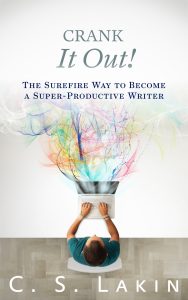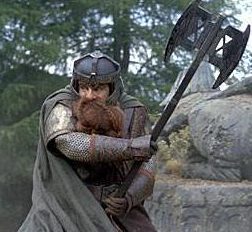How We’ve Ruined Our Brains in This Modern Era
Ah, distraction. The bane of our modern existence. Face it—we are going to be deluged with distractions every waking moment of the day. Unless you’ve found a way to live in a bubble or at the top of a mountain, deep in a cave, you probably are going to have some distractions. Even then, that water dripping from the ceiling in a steady rhythm is going to start distracting us.
I think the problem is worse than we know. Because decades ago, we just didn’t have the kinds of distractions we have now. And because we are so used to being connected online to everyone else in the world (or so it seems) around the clock, it’s more a problem of our habits than anything else.
So now we’re going to go deep into the “C” of our Productivity ABCs: our choices, which impact our behavior. And retraining our brain is a choice writers need to make if they’re to be super productive.
How We’ve Ruined Our Brain
For instance, my brain is now so used to derailing at any given second, even when I’m backpacking alone in the Sierras, away from any cell phone signals, it takes me days to decompress and allow my brain to settle into what feels like a natural state of being and observation. I have to confess I now take my phone and solar charger with me so I can read and play games and listen to music on my phone while out in the wilderness. But I’m thinking of making a resolution to leave the tech back in civilization. Because it’s starting to control me and not the other way around.
And I’m not the worst offender—not by far. I look at a lot of young people when I’m out about town. Even in the movie theater, they’re texting on their phone. I went to an NBA game recently (and those tickets aren’t cheap), and the couple in front of us never got off their phones. They never watched the game. They took selfies one after the other, then texted them to their friends. I know all this because the section we sat in was steep, and we looked down right into their phones.
We moved to some other seats; I just couldn’t take it after a half hour. Later, at halftime, I saw the couple on the concourse. Good, I thought, they’re taking a tech break. But no. They were standing near the wall, charging their phones so they could keep up the texting for the second half of the game.
I really wanted to scream. Sometimes I think smartphones are the worst thing that’s ever happened to us. Computers? Great. But once phones added on texting and email and cameras, that was the beginning of the end. Yes, I’m a hypocrite, because I use it all. And I know I’m way too dependent on my phone. But I’m thinking of putting some limitations on—for my sanity.
Have you ever forgotten your phone for the day? Left it at home by accident? Be honest—did you nearly (or truly) fall apart? What if you chose one day a week to be without tech? Or at least without your phone?
I wonder how many could get through the day.
The Curse of Our Era
I say all this because what’s at the heart of the problem is the habit we’ve developed. Back in the age of the dinosaurs (my childhood), each household had one phone number and usually a few big old phones plugged into the wall. You’ve seen it in the movies or old TV shows—that thing with the dial? And the super long stretchy cord that allowed you to get away from Mom, who was in the kitchen preparing dinner, so you could talk to your girlfriend or boyfriend.
Some parents limited the time their teens could talk on the phone. I would sneak the phone into my room late at night to talk to my boyfriend. Good thing it was a local number. Long-distance calls were not only expensive, they showed up on the phone bill. As an adult, cell phones and mobile phones were nonexistent until my daughters were in their late teens. So even up until then, phones were rarely used. You told your kids to “call when you get there and call when you’re leaving.” That was about it for phone use. Kids and adults actually spent time together and just about the only time they communicated was when in person, face-to-face. Imagine that.
I know I’m wandering down memory lane, but, in some ways, I’m nostalgic for that quieter, simpler, less distracting time. We moved slower, paid more attention. We lived in the “now” moment and actually experienced life.
I can honestly say I believe few people in our culture today do any of that. I know people who are so busy snapping pictures every second that they actually aren’t experiencing the life they are documenting. They spend hours looking at their photos, ones they took each day. But they actually, to me, weren’t “there.”
So what’s the point of saying all this?
Multitasking Is Great, Right?
All this tech has helped us to multitask, and that’s great, right?
Wrong. We’ve ruined our brains. What we do each day, every second of the day, is not natural. It’s not healthy. We may feel we are super productive, and we may be multitasking with the best of them. But here are some interesting statistics that studies have presented:
- Multitaskers experience a 40% drop in productivity.
- Multitaskers take 50% longer to accomplish a single task than if focusing only on that task.
- Multitaskers make up to 50% more errors.
- It takes four times longer to recognize new things when we multitask.
- Up to 40% more time is needed to switch tasks.
- Multitasking costs the US economy $650 billion a year in lost productivity.
- 31 workweeks are lost each year due to multitasking.
When we jump from task to task or from one activity to another at such regular and alarming rates (I tend to check my email every couple of minutes, on my bad days, and that’s exacerbated if I’m working on something I’m not all that into), we don’t get into our groove. We don’t find our flow.
To be a productive writer, you gotta get into that zone. And stay there for a while. Our writing suffers when we let ourselves get distracted. And while I’ll get into habits and distraction in much more depth, I want to first talk about how we can retrain (and restrain) our brains, now that we’ve ruined them. (Maybe I should make T-shirts that say “Reclaim Your Brain—Unplug.”) So, in next’s week’s post, I’ll be showing you how you can do this.
How do you know if you need to retrain your brain?
If tasks that should take thirty minutes take you an hour to complete, or if you constantly find yourself wander the halls of the Internet on your phone or other device, checking social media sites and texting a friend, the answer is yes.
Larry Rosen, PhD, a research psychologist and author of Disorder: Understanding Our Obsession with Technology and Overcoming Its Hold on Us says we rarely focus on and attend to any task for more than three to five minutes without getting distracted.
“The bottom line is we are all constantly self-distracting, whether you’re in school, at your job, or just at home.”
What about you? How easily are you distracted? How bad is it?
Regardless of whether you write fiction or nonfiction, if you want to get established as an author, you need to be productive. Highly productive.
You can’t just write one terrific book and call it good, expecting that singular work to carry you atop the wave of success for y ears to come.
ears to come.
Studies show readers want 3-4 books a year from their favorite authors. And to build traction and a growing audience, authors need to deliver.
The key to being highly productive is centered on knowing yourself. First you need to identify your distractions, excuses, and attitudes that are keeping you from being the productive writer you want to be. Then you need to assess your unique biology, to determine the best times to write and to optimize your sleep and eating habits. It’s all here in Crank It Out!
Get your ebook or print copy HERE.
Turn your life and career around by learning the surefire way to be the super-productive author you long to be!












this is why I refuse to have FB on my phone. I loathe pop-ups and push notifications for the same reason – i’ll get to it (whatever “it” may be) when *I* am darn good and ready!!
this is why I refuse to have FB on my phone. I loathe pop-ups and push notifications for the same reason – i’ll get to it (whatever “it” may be) when *I* am darn good and ready!!
I agree that we need to have some time without technology to control our thoughts and activities. I went away for 8 days to see my grandchildren without a laptop to check my FB or e-mail. I did have my smart phone which had a limited way to check these activities, but I did nothing more than look to see if important e-mails had arrived. It was liberating as I was more in tune with my grandkids and the surroundings in their lovely town of Paradise! I will adhere to this “sabbathical” for any time spent away as it gives more time to relate to others “face to face.” I’ll make sure to bury my phone in the purse and only use it for important messages. Thanks for making me aware of how subtle and powerful technology can exert its hold on my mind and time!
While many of us continue working on this issue, I’m heartened that our and our friends’ children–all in their twenties–do not check their phones 82 times a day (per a recent study average), aren’t on Twitter or FB much, and prefer to engage with friends and family in person or phone. It keeps them in touch and aware of their own needs and productivity.
That’s wonderful about your family and friends. When our kids were young and into our teens, we encouraged them to be outdoors (we lived on a ranch and by the beach) and it was great to see how little time they spent watching TV. They are now very creative, productive adults who lead balanced lives and spend much time outdoors enjoying nature while indulging in tech and working in high-tech jobs. There can be a balance!
The worst transgression of people obsessed with their phones are those who talk on them while in a public bathroom or a locker room. I’ll never forget several years ago when I saw a man standing at a urinal in a restaurant men’s room while talking on his phone. I thought surely it was an anomaly. But, as the years progressed, I saw (and heard) more and more men doing the same or similar.
Once, at the government agency where I used to contract, I heard a man talking in a men’s room. I immediately realized he was in one of the stalls. He kept saying, ‘Yes, ma’am,’ which startled me into wondering how rude it was for him to be talking so formally to any female while sitting on a public toilet. What topic is so pressing that it cannot wait?
A few years ago I was preparing to leave my gym, after an intensive workout. A young man was standing nearby on his phone. I wasn’t really paying attention to him at that moment – having already grown accustomed to such idiocy – when I loudly belched. I didn’t think twice about it. After all, this was the men’s locker room. The guy instantly became enraged with me because he’d been on the phone with his mother, and she’d heard me. He literally yelled at me for being so “f*****g rude” and demanded I apologize to his mother. I promptly and loudly told him that him and his mother could kiss my back side; if anyone was rude, I yelled, it was him. How more disrespectful could he possibly be than to talk with his mother while in a men’s locker-room?
Technology like cell phones and computers may be some of the best inventions, but indeed, they’ve made so many people more stupid. And lazy. In another situation at that government agency, I was curious why a coworker hadn’t responded to my email questioning a certain procedure. I walked down to her office one morning and asked if she’d even received the email. She had, she told me, and had tried to reply via instant message through an application called ‘Same-Time,’ which functioned through the email system. I told her I hadn’t yet been set up on Same-Time; meaning I couldn’t get her reply; meaning she should have gotten up from her desk and told me in person or just replied to the email. Instead, she kept trying to send me that instant message. Understand that I sat in a separate office just a few feet away; practically within shouting distance. It literally took every ounce of personal fortitude not to call her an idiot out loud.
As creative types, we writers generally understand the complexities of the human experience and realize that emotions can’t be filtered through a computer. Yet I understand there are now software programs that help writers determine if their passages are not just grammatically correct, but coherent as well. In other words, a computer program is supposed to tell a writer what they wrote makes sense and corresponds logically with everything in the story. Excuse me?
I presume we should take Isaac Asimov’s premonitions seriously.
Thank you for those thoughts. I agree. I wonder what Asimov would do with the crazy tech lives we lead today.
This is spot on when it comes to society today. I’m 50 and I can’t imagine life without the internet anymore, I love facebook and staying connected with family and friends that live out of state. BUT, you have to find a balance and practice self-control. I see way too many people on phones when they not only should be paying attention, (like while driving or even riding a bike!) or enjoying LIFE around them at the botanical garden, the zoo or as mentioned, at a game or event you actually paid to attend. I refuse to have a smartphone. I have discovered that there are others out there that feel the same way. I did actually try one for about 6 months. I went back to my flip phone and have not regretted a day since. No butt-dialing, no accidental hang-ups and no distractions when I am driving or heaven forbid, out on a run or taking in mother nature. It seems that no one has self-control anymore. Keep tech time separate from work time, family time, etc.. I have certain times when I do phone calls and emails in order to keep work time for WORK, be it writing or the ‘day job’. After the to-do list is finished, then I can check out facebook or other online guilty pleasures. Balance and self-control…key to life in so many ways. Thanks for the great post!
Right. All we need to do to sober up is think about the man who was looking at his cell phone and died when he fell off a cliff.
I fathered five children and they were raised without TV, computers or cell phones (many people looked at me and even accused me of criminal behaviour because of that decision). I look at them today and see 5 productive self-reliant, capable individuals who simply use ‘technology’ as you would a hammer during a building project.
And as to the ‘multi-tasking’…that only emphasizes, imo, the OCDs that exist among so many individuals. When people become aware of the deeper nuances of this OCD stuff and dissolve it, ‘multi-tasking’ will fade well into the background. It’s all about wanting to be “good enough” and the search for the real & higher self. When the search or journey is wayward, these sorts of psycho anomalies are ever present.
Thanks for those comments. We raised our kids on a farm near the ocean and we always got them outside, even though we lived in a place with 80 inches of rain a year. They are adults now who love the outdoors and rarely ever watch TV. However, they are very tech savvy and have tech careers, yet, given a choice, they will go hiking instead of playing a video game, no question.
I think life seems full of what we don’t need to live longer. The basic communication of one person to another is dialed down to texting. I don’t have a TV. My home overlooks the water. I have over 1,000 CDs. I don’t have a car. I walk or take the train. I don’t even have a KINDLE, instead shelves thoughought my home holding books. My friends and family are always welcomed at out home with an formal invite. I write for the joy of it.